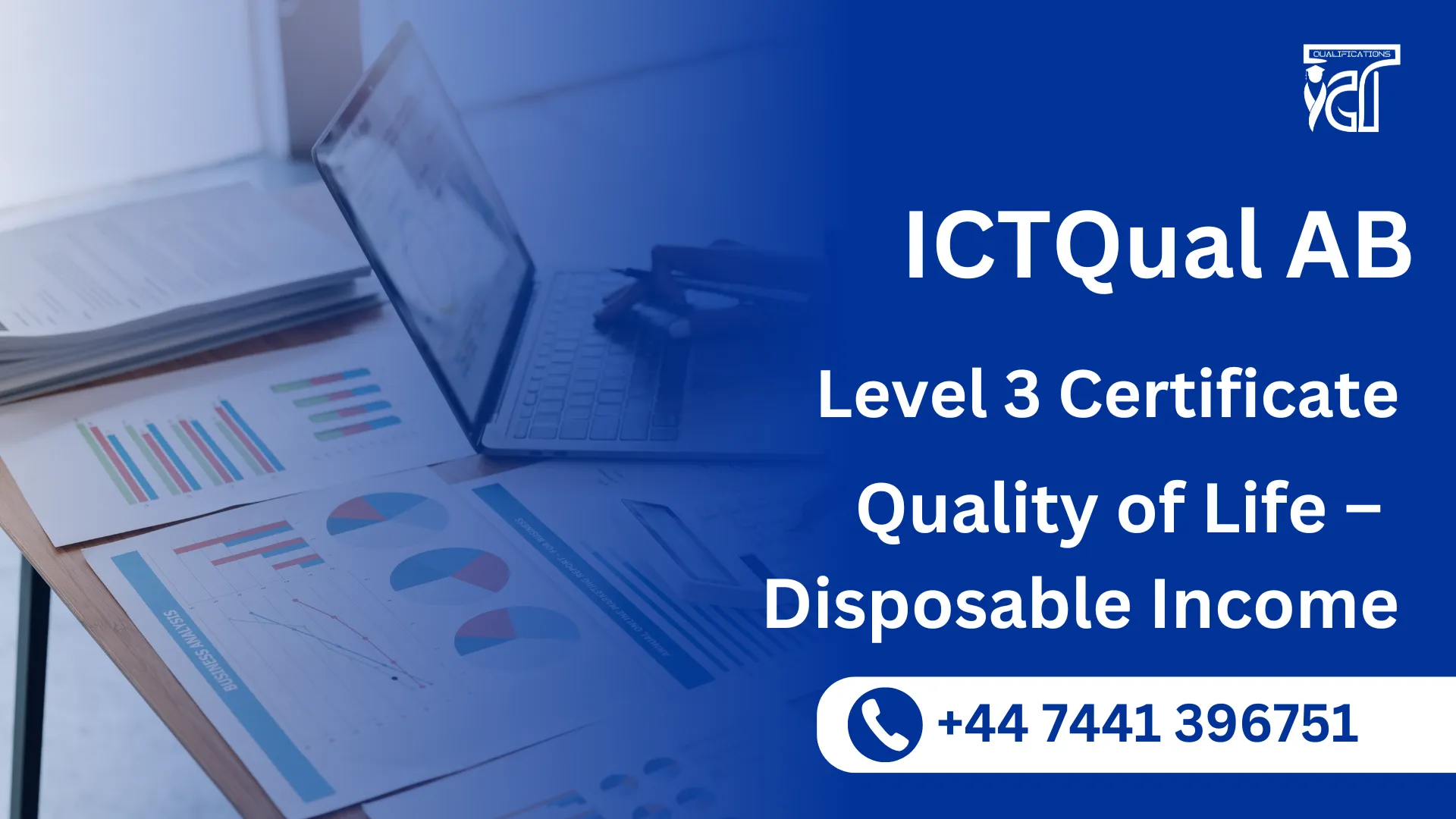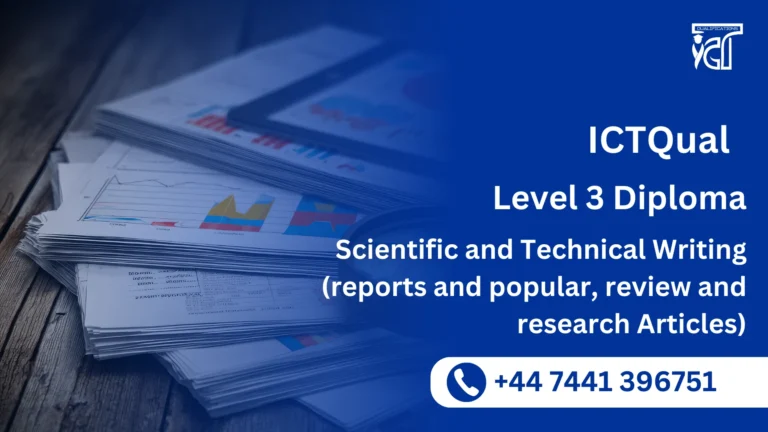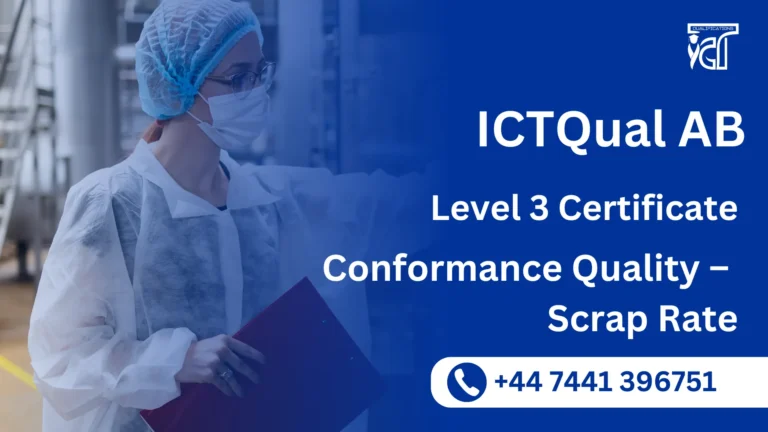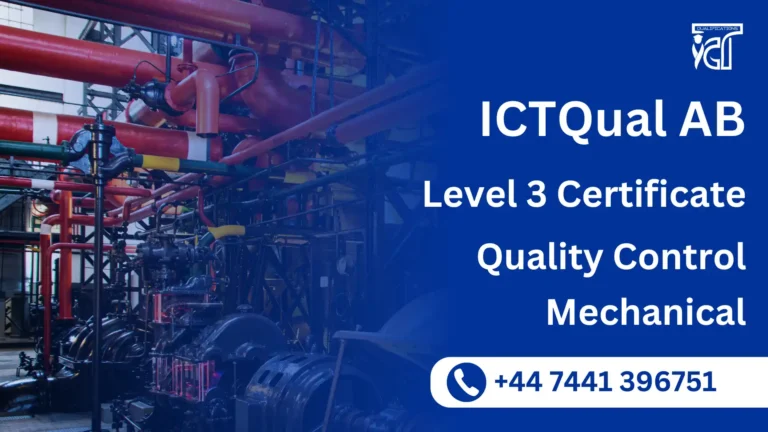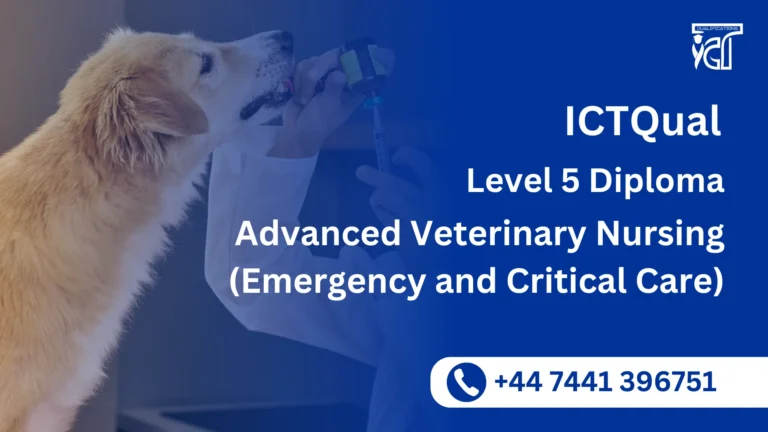The ICTQual AB Level 3 Certificate in Quality of Life – Disposable Income is designed to help learners understand the critical role of financial resources in shaping individual and community well-being. Disposable income is more than just earnings after expenses; it reflects the capacity to access opportunities, improve living standards, and contribute to sustainable economic growth. This qualification equips participants with the knowledge and skills to analyze income distribution, assess its impact on quality of life, and explore strategies for financial empowerment.
Learners will explore the principles of disposable income, including its relationship with consumption, savings, and investment. The program emphasizes how income levels influence access to healthcare, education, housing, and leisure, thereby directly affecting overall life satisfaction. Through case studies and applied learning, participants gain practical insights into how disposable income supports both personal development and community resilience.
The course also highlights the intersection of economics, governance, and social responsibility. Learners will develop competencies in interpreting financial data, understanding income inequality, and supporting initiatives that promote fair distribution of resources. By integrating theoretical knowledge with practical applications, the program ensures participants are prepared to contribute meaningfully to both professional and community contexts.
By the end of the qualification, learners will be equipped to pursue roles in financial planning, community development, policy analysis, and social responsibility initiatives. The skills gained will support career progression into supervisory or specialist positions, while also providing a foundation for advanced study in economics, social development, and sustainable living. This certificate is a valuable credential for professionals committed to improving quality of life through financial awareness and responsible resource management.
ICTQual AB Level 3 Certificate in Quality of Life – Disposable Income
This qualification, the ICTQual AB Level 3 Certificate in Quality of Life – Disposable Income, consists of 3 mandatory units.
| Sr# | Unit Title |
| 1 | Foundations of Disposable Income and Quality of Life |
| 2 | Income Distribution, Lifestyle Choices, and Social Impact |
| 3 | Financial Literacy, Resource Management, and Sustainable Living |
Learning Outcomes for the ICTQual AB Level 3 Certificate in Quality of Life – Disposable Income:
Foundations of Disposable Income and Quality of Life
By the end of this unit, learners will be able to:
- Define the concept of disposable income and explain its measurement.
- Analyse the relationship between disposable income and overall quality of life.
- Identify key factors that influence levels of disposable income across societies.
- Evaluate how disposable income affects access to healthcare, education, and housing.
- Demonstrate understanding of the role of taxation and government policy in shaping disposable income.
- Reflect on the importance of financial stability for individual and community wellbeing.
- Compare global perspectives on disposable income and living standards.
- Apply theoretical frameworks to assess the impact of income on lifestyle choices.
- Develop critical thinking skills to link income levels with social and economic outcomes.
Income Distribution, Lifestyle Choices, and Social Impact
By the end of this unit, learners will be able to:
- Explain the concept of income distribution and its role in social equity.
- Analyse how income inequality influences lifestyle opportunities and limitations.
- Evaluate the impact of disposable income on consumption patterns and social mobility.
- Demonstrate awareness of the relationship between income distribution and community wellbeing.
- Reflect on ethical considerations in addressing income inequality.
- Apply knowledge of income distribution to real‑world case studies.
- Identify the role of government, NGOs, and international organisations in reducing inequality.
- Propose strategies for promoting fairer income distribution and inclusive growth.
- Assess how lifestyle choices are shaped by both cultural values and financial capacity.
Financial Literacy, Resource Management, and Sustainable Living
By the end of this unit, learners will be able to:
- Demonstrate understanding of financial literacy and its importance in daily life.
- Apply budgeting and resource management techniques to personal and community contexts.
- Evaluate the role of savings, investments, and responsible spending in improving quality of life.
- Analyse how financial literacy contributes to long‑term wellbeing and resilience.
- Reflect on the importance of ethical financial decision‑making.
- Identify strategies for promoting sustainable consumption and responsible resource use.
- Apply financial planning skills to case studies involving disposable income.
- Demonstrate awareness of global challenges in financial literacy and sustainable living.
- Propose initiatives that integrate financial literacy with sustainable community development.
The ICTQual AB Level 3 Certificate in Quality of Life – Disposable Income helps learners understand how financial resources influence living standards, access to opportunities, and overall well-being. By completing this course, participants gain practical knowledge and skills to analyze disposable income, manage resources effectively, and contribute to sustainable personal and community development.
1. Enhanced Financial Awareness
- Gain insights into the concept of disposable income and its impact on quality of life.
- Understand the relationship between income, consumption, savings, and investment.
- Learn how financial resources affect access to healthcare, education, housing, and leisure.
- Build awareness of income inequality and its social implications.
2. Practical Skills in Resource Management
- Acquire skills to evaluate and manage disposable income for personal and community benefit.
- Learn strategies for budgeting, saving, and responsible spending.
- Strengthen ability to interpret financial data and apply it to real-life scenarios.
- Develop competencies in promoting financial empowerment and resilience.
3. Contribution to Social and Economic Development
- Apply knowledge of disposable income to support community well-being and social stability.
- Understand how income distribution influences economic growth and sustainability.
- Contribute to initiatives that promote fair resource allocation and financial inclusion.
- Support policies and practices that enhance living standards across diverse communities.
4. Career and Progression Opportunities
- Enhance employability in roles related to financial planning, community development, and policy analysis.
- Position yourself for supervisory or specialist responsibilities in social responsibility initiatives.
- Build a foundation for progression into advanced qualifications in economics, social sciences, or sustainable development.
- Gain recognition as a professional committed to improving quality of life through financial awareness.
The ICTQual AB Level 3 Certificate in Quality of Life – Disposable Income is designed for individuals who want to understand how financial resources influence living standards, access to opportunities, and overall well-being. The ideal learner is someone motivated to explore the relationship between income, consumption, savings, and social development.
1. Financially Aware Learners
- Individuals interested in managing disposable income effectively for personal and community benefit.
- Learners keen to understand how income distribution impacts quality of life.
- Those motivated to apply budgeting, saving, and responsible spending strategies.
- People who want to strengthen financial literacy and empowerment.
2. Community and Social Development Enthusiasts
- Learners passionate about improving living standards through fair resource allocation.
- Individuals aiming to contribute to initiatives that promote financial inclusion and equality.
- Those interested in linking disposable income to social stability and sustainable development.
- Candidates motivated to support community resilience through financial awareness.
3. Analytical and Reflective Thinkers
- Learners who enjoy interpreting financial data and exploring its social implications.
- Individuals motivated to analyze the balance between consumption, savings, and investment.
- Those keen to reflect on how disposable income influences access to healthcare, education, and leisure.
- Candidates interested in applying theoretical knowledge to practical financial scenarios.
4. Career-Oriented Learners
- Professionals seeking to enhance employability in financial planning, policy analysis, or community development.
- Individuals aiming for supervisory or specialist roles in social responsibility or economic development.
- Learners planning to progress into advanced qualifications in economics, social sciences, or sustainable living.
Completing the ICTQual AB Level 3 Certificate in Quality of Life – Disposable Income equips learners with the ability to analyze financial resources, understand their impact on living standards, and apply strategies for responsible resource management. This qualification opens pathways for both academic advancement and career growth in financial literacy, social development, and economic policy.
1. Academic Progression
- Progression to higher-level qualifications such as:
- ICTQual AB Level 4 Diploma in Economics and Social Development.
- Advanced diplomas in Financial Planning, Community Development, or Sustainable Living.
- Specialized certifications in financial literacy, resource management, or social responsibility.
- Opportunity to build towards professional diplomas in economic policy and social sciences.
2. Professional Development
- Enhanced readiness for roles in financial planning, community development, and policy analysis.
- Ability to contribute to initiatives that promote financial inclusion and responsible resource allocation.
- Recognition as a professional capable of linking disposable income to quality of life improvements.
- Strengthened ability to support organizational and community strategies for sustainable development.
3. Industry Opportunities
- Career progression into roles such as Financial Literacy Advisor, Community Development Officer, Policy Research Assistant, or Social Responsibility Facilitator.
- With experience, advancement into senior positions such as Economic Development Consultant, Resource Management Specialist, or Policy Advisor.
- Employability across sectors including education, NGOs, government agencies, and international development organizations.
4. Long-Term Pathways
- Foundation for pursuing international certifications in economics, financial literacy, and sustainable development.
- Opportunities to contribute to global initiatives focused on income equality and improved living standards.
- A stepping stone toward leadership positions in economic development, social responsibility, and community resilience.
Entry Requirements
Learners must meet the following criteria to be considered for admission into the course:
- Age Requirement: Learners must typically be 18 years of age or older at the time of enrolment
- Educational Background: Completion of secondary school education or equivalent qualification. A prior Level 2 certificate in economics, social sciences, or community development is helpful but not mandatory.
- Work Experience: No formal industry experience required; however, exposure to financial literacy programs, community projects, or social initiatives is beneficial. Learners with volunteer or professional experience in financial planning, budgeting, or social development will find the course particularly relevant.
- English Language Proficiency: Competence in English (or the language of instruction) sufficient to participate in discussions, complete assignments, and engage with course resources.
Register Now
Qualification Process
Qualification Process for the ICTQual AB Level 3 Certificate in Quality of Life – Disposable Income
- Self-Assessment:
Begin by evaluating your eligibility to ensure you meet the qualification requirements, including work experience, knowledge, and language proficiency. - Registration:
Complete your registration by submitting the required documents, including a scanned copy of a valid ID, and paying the registration fee. - Induction:
An assessor will conduct an induction to confirm your eligibility for the course and explain the evidence requirements. If you do not meet the criteria, your registration will be cancelled, and the fee will be refunded. - Assignments & Evidence Submission:
Provide all assignments and the necessary evidence based on the assessment criteria outlined in the course. If you are unsure of the required evidence, consult with the assessor for guidance on the type and nature of evidence needed. - Feedback and Revision:
The assessor will review your submitted evidence and provide feedback. Evidence that meets the criteria will be marked as “Criteria Met,” while any gaps will be identified. You will be asked to revise and resubmit if needed. - Competence Evidence:
Submit final evidence demonstrating that all learning outcomes have been met. This evidence will be marked as “Criteria Met” by the assessor once it is satisfactory. - Internal Quality Assurance (IQA):
The Internal Quality Assurance Verifier (IQA) will review your evidence to ensure consistency, quality, and compliance with standards. - External Verification:
The IQA will submit your portfolio to ICTQUAL AB External Quality Assurance Verifiers (EQA) for final confirmation. The EQA may contact you directly to verify the authenticity of your evidence. - Certification:
Upon successful completion of all checks, ICTQUAL AB will issue your official certificate, confirming that you have attained the ICTQual AB Level 3 Certificate in Quality of Life – Disposable Income.

